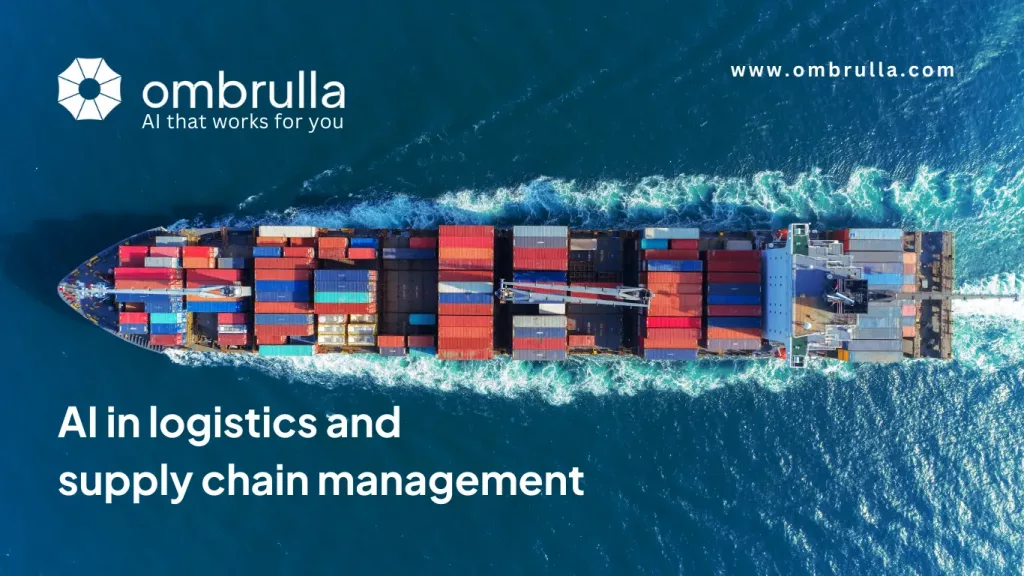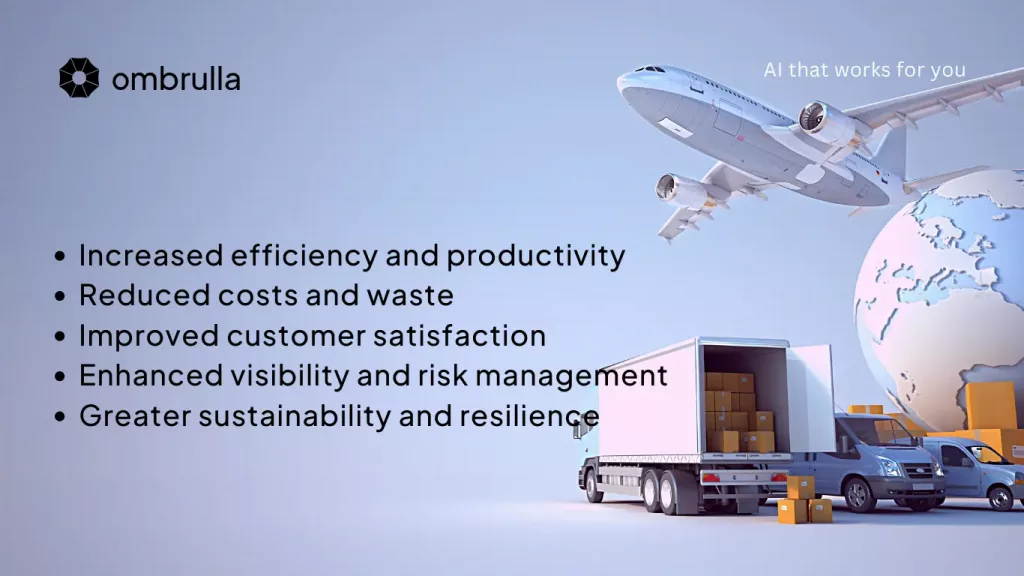
Artificial intelligence (AI) has dramatically influenced logistics and supply chain management, bringing about a wave of transformation and optimization. Here are some key ways AI data analytics impact these sectors:
1. Demand Forecasting:
- Machine learning algorithms analyze historical data, market trends, and external factors like weather and social media to predict demand with greater accuracy. This allows companies to optimize inventory levels, production schedules, and transportation resources, avoiding costly overstocking or understocking.
2. Dynamic Routing and Optimization:
- AI-powered data analytics constantly analyze real-time traffic conditions, weather, and vehicle data to determine the most efficient routes for deliveries. This reduces transportation costs, emissions, and delivery times, leading to improved customer satisfaction and operational efficiency.
3. Warehouse Automation and Robotics:
- Intelligent robots and drones with computer vision and AI visual inspection navigate warehouses autonomously, performing tasks like picking, packing, and sorting goods. This increases storage capacity, improves accuracy, and reduces labour costs, making warehouses more efficient and resilient.
4. Predictive Maintenance and Repair:
- AI analyzes sensor data from vehicles, equipment, and infrastructure to predict potential failures before they occur. This allows for preventative maintenance, minimizing downtime, disruptions, and repair costs, ensuring smooth operation and delivery schedules.
5. Enhanced Visibility and Transparency:
- Real-time data dashboards provide end-to-end visibility of the supply chain, allowing companies to track shipments, monitor inventory levels, and identify potential issues proactively. This transparency improves communication, collaboration, and risk management across the entire chain.
6. Fraud Detection and Risk Management:
- AI can analyze purchase orders, shipping patterns, and financial transactions to identify suspicious activity and potential fraud. This helps companies protect against theft, cyberattacks, and other supply chain disruptions.
7. Sustainability and Green Logistics:
- AI data analytics can optimize routes and fuel consumption, reducing emissions and environmental impact. Additionally, AI can help choose green packaging materials and optimize energy usage in warehouses, contributing to a more sustainable supply chain.

Overall, AI’s influence on logistics and supply chain management is immense, leading to:
- Increased efficiency and productivity
- Reduced costs and waste
- Improved customer satisfaction
- Enhanced visibility and risk management
- Greater sustainability and resilience
As AI data analytics technology continues to evolve, we can expect even more transformative applications in logistics and supply chain management, shaping the future of how goods are moved and delivered around the world.
AI Applications AI Data Analytics AI Defect Detection AI forecasting AI for Everyone AI in Automotive AI in Green Logistics AI in Logistics AI in Manufacturing AI in Pharmaseutical AI Inspection AI in Supply chain AI Quality Control AI Quality Controll AI Quality Inspection AI Video Analytics AI Visual Inspection AI Visual Inspection use cases Artificial Intelligence asset health monitoring asset performance management asset performance management software asset tracking Computer Vision Defect Detection equipment tracking Future of AI Google Industrial AI iot asset management Predictive maintenance predictive maintenance systems Process Optimization Ship Inspection using AI

Leave a Reply